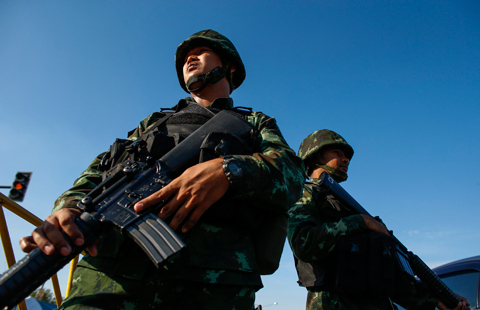Ecuador: US scientists unethically sold blood
By Agence France-Presse in Quito, Ecuador (China Daily) Updated: 2014-06-18 07:18
US scientists took thousands of unauthorized blood samples from an indigenous group known for a unique genetic profile and disease immunity, and some of the samples have been sold, Ecuador charged on Monday.
There were about "3,500 procedures" in which blood was drawn without authorization from 600 Huaorani, who live in a corner of Ecuador's isolated Amazon basin region, said Rene Ramirez, head of the Higher Education and Science Ministry.
Samples "were also taken from some people on more than one occasion", he said, revealing new details of a government investigation, on state television ECTV.
In the initial report two years ago, the Huaorani, whose language is not clearly linked to those of local Quechua-speaking indigenous people, said some US people duped them in 1990 and 1991.
The Huaorani said they were told the blood samples were for medical tests for them, but the results never came.
When the allegations emerged in 2012, the US embassy said it was not aware of the case. On Monday, as new details emerged, a US embassy spokesman did not immediately respond to requests for comment.
One of the scientists is believed to be a US doctor working with Texas-based Maxus Energy. The samples were believed to have been sold by the Coriell Institute for Medical Research to Harvard University Medical School, the government ombudsman's office said in 2012.
"It was demonstrated that the Coriell Institute has in its (genetic) stores samples (from the Huaorani) and that it sells genetic material from the Huaorani people," the report added.
Since 1994, seven cell cultures and 36 blood samples were distributed to eight countries, it charged at the time.
Ecuadorean President Rafael Correa on Friday said there was information indicating that samples were taken as early as the 1970s "in complicity with the oil company operating in the area - Maxus".
Correa said the blood was being used in research because the indigenous group targeted is very isolated, and "immune to some illnesses".
This happened despite Ecuador's Constitution bans the use of genetic material and scientific research, deeming it a in violation of human rights.
The president, a leftist economist by training, said there was "no US federal legal grounds to sue Coriell, Maxus or (Harvard) " but that he would look for other litigation options.
The United States and Ecuador have strained diplomatic ties.










